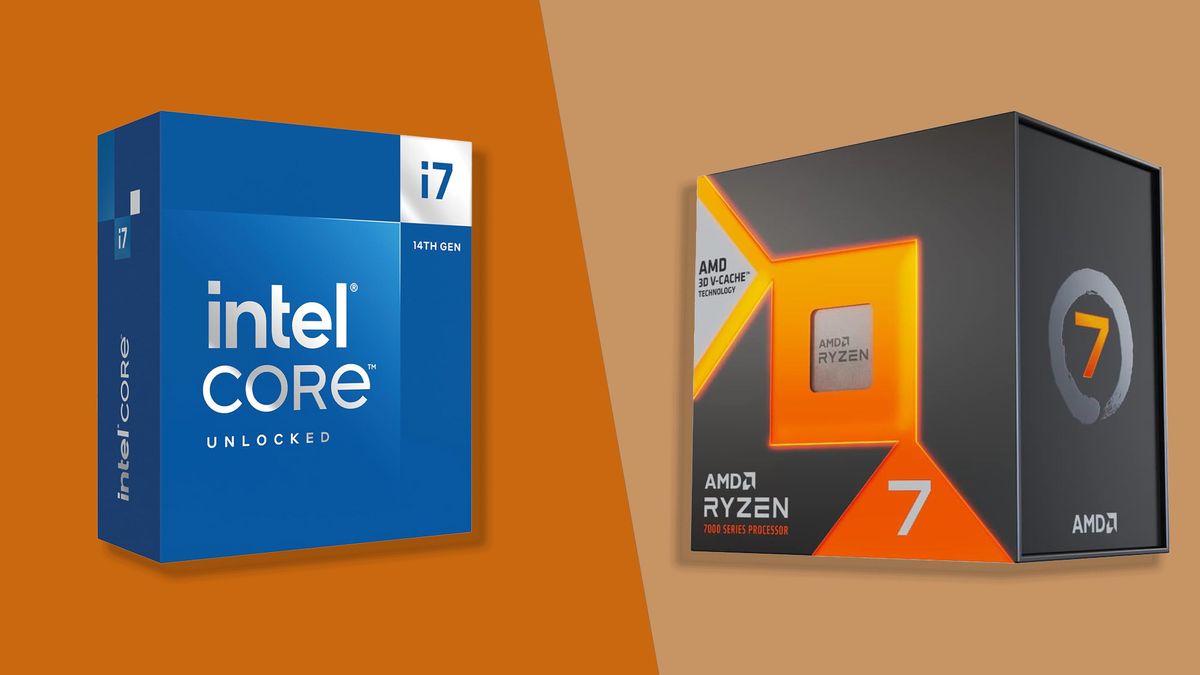New Article:
The rivalry between Intel and AMD continues as the battles of the latest chips Continue. Both the 14700K and the 7800X3D are mid-range processors, each with its own distinct set of features and benefits.
The Intel Core i7-14700K offers 12 efficiency cores, 8 performance cores, and 28 threads. With a base clock of 2.5 GHz for E-Cores and 3.4 GHz for P-Cores, along with a boost clock of 4.3 GHz for E-Cores and 5.5 GHz for P-Cores, it also boasts a total cache of 61MB and a TDP of 125W. This chip delivers performance comparable to that of the Core i9-13900K, which is impressive given that the 14700K is priced as a mid-range i7 chip. However, it does produce a significant amount of heat and uses more power.
On the other hand, the AMD Ryzen 7 7800X3D offers 8 performance cores, 16 threads, a base clock of 4.2 GHz, and a boost clock of 5.0 GHz. It also has a Total Cache of 104MB and a TDP of 120W. While it excels in gaming performance and energy efficiency, it lags behind competing chips in non-gaming performance.
These two chips are compared here to gauge the best value for your mid-range gaming rig. The 14700K has built upon the previous Raptor Lake line of processors, offering impressive price-to-performance. Meanwhile, the 7800X3D features 3D V-Cache for better gaming performance and energy efficiency. Both are iterations of previous generations and showcase the best of their respective manufacturers.
When it comes to price, the 14700K is cheaper than the 7800X3D, making it the winner in this category. Additionally, the 14700K benefits from backward compatibility with older motherboards, while the 7800X3D requires a new board due to the difference in socket usage.
In terms of specs and features, the 14700K and the 7800X3D demonstrate different approaches. The 7800X3D has more L3 cache and a faster base clock speed, but the total cores and threads as well as the up to 5.6 GHz boost clock of the 14700K set it apart.
Performance-wise, the 14700K excels in synthetic benchmarks, multi-core tests, and productivity tasks due to its additional cores and threads. However, the 7800X3D outshines the 14700K in gaming performance, making it a strong choice for gaming purposes.
In conclusion, the 14700K and 7800X3D have their own strengths and weaknesses, and the choice between them will depend on the specific needs of your mid-range gaming rig.

I have over 10 years of experience in the cryptocurrency industry and I have been on the list of the top authors on LinkedIn for the past 5 years.

